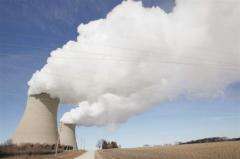US in spotlight as UN climate talks resume

UN talks tasked with forging a global climate treaty by year's end were set to resume here on Sunday, with all eyes on the debut appearance of US negotiators from the administration of US President Barack Obama.
Some 190 countries are struggling to find a common accord on how to slash greenhouse gas emissions beyond 2012, when Kyoto Protocol provisions expire. Many are banking on Obama to breathe new life into the troubled process.
In Washington, meanwhile, the US president on Saturday launched a parallel series of climate meetings of the world's largest economies.
The Major Economies Forum on Energy and Climate is designed to "help generate the the political leadership" for successful climate change negotiations December in Copenhagen, the White House said in a statement.
The 17-nation forum -- which includes industrialised countries and emerging economies such as China, India and Brazil -- is a direct extension of an initiative taken by Obama's predecessor, George W. Bush.
But unlike Bush, who rejected the Kyoto Protocol and refused emissions reduction targets for the United States, Obama has set national goals for slashing carbon pollution and vowed to take a leading role in forging a climate pact.
Obama's climate team, headed by Todd Stern, is scheduled to make a statement at the start of the 11-day meeting in Bonn.
"The real negotiations are beginning here in Bonn," the UN's top climate official, Yvo de Boer, told AFP ahead of the technicial talks.
"I hope (Stern) will set out the main principles that will guide the United States," said de Boer, executive secretary of the UN Framework Convention on Climate Change (UNFCCC).
During the US presidential campaign, Obama vowed to match the European Union's mid-century objectives of cutting CO2 emissions by 80 percent.
But he offered a more modest goal for 2020 of returning the US to 1990 level emissions, a reduction of about 14 percent from current levels.
The EU has promising to slash emissions by 20 percent compared to 1900 levels by 2020, and by 30 percent if other industrialised countries follow suit.
With less than nine months left to complete an accord of extraordinary complexity, a rough consensus has coalesced around a target for 2050.
But there remains deep disagreement on how to divvy up the burden between rich and emerging economies and what stepping-stone targets should be set along the way.
Industrialised nations are prepared to take on the larger burden, but want China, India, Brazil and other major carbon polluters also to make commitments of some kind.
These countries, in turn, say they first want to see firm commitments for deep cuts in CO2 emissions from rich nations, as well as money on the table to help them develop clean technology and adapt to climate change already underway.
(c) 2009 AFP















